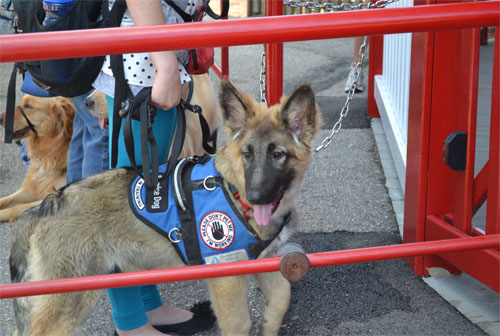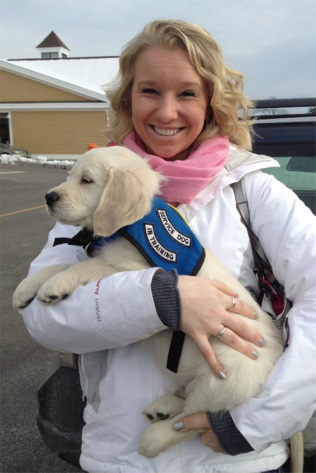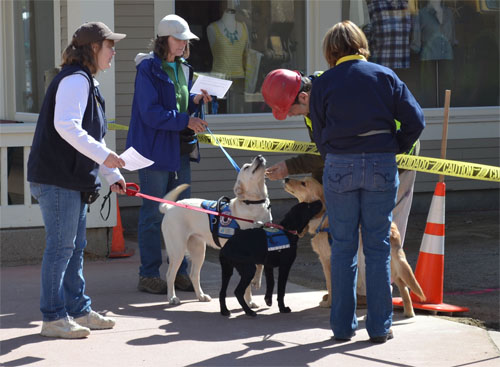Puppy Selection and Training
|
The training of A.C.T.S. puppies starts with puppy selection. Most of our puppies come from purpose bred programs that have breeding plans to help ensure good health, longevity, and the appropriate temperament for the work. We use, primarily, golden retrievers and labrador retrievers. We occasionally accept standard poodles and other breeds. We have puppies from the Guiding Eyes for the Blind breeding program, from the ADI ABC Puppy Cooperative, and from select breeders. When we take puppies from breeders, we select breeders that utilize appropriate socializing exercises during this very critical imprinting period.
Whenever possible, we test puppies between the ages of 7 and 8 weeks. We use the same test utilized by the top service and guide dog organizations in the country. Once puppies are selected, they are placed with one of our volunteer puppy raisers. Puppy raisers have puppies anywhere from six months to two years. Most raisers keep the same puppy for two years, but some raisers prefer young puppies and some prefer older puppies. In an effort to utilize raiser skills to the utmost, we sometimes move puppies to different homes throughout their training. When puppies first come to us, they are enrolled in the A+ Puppy Program. This eight week program is designed to give puppies a jump start in their training and socialization and to maximize the benefits of early imprinting. Early training includes both socialization and basic obedience. Socialization exercises and excursions are carefully planned to include a wide variety of sights, sounds, and appropriate experiences. Since young puppies learn quickly and retain so much from their early months, we also start basic obedience training immediately. During basic training puppies also start to learn the foundation skills, like attention, targeting, tugging, and fetching, that they will later need for task training. As the puppies start to get older, their public access lessons start to become more “professional”. As they get older they are no longer allowed to visit with strangers or play with children while out working. We start to work more on focus around distractions, and we begin to expose the puppies to increasingly more difficult situations. At this stage, task training begins to move from foundation skills to actual tasks. Puppies move from just targeting with their nose to actually flipping on a light switch. Task training is ongoing, moving from the basic foundation skills they learn as young puppies, to fine tuning skills to the needs of each client. Trick training starts to be important at this time as well. Since our puppies will find their careers in either service dog work or facility dog work, we teach all of them a variety of skills and tricks that are built from the foundation skills they learned at a younger age. As the puppies pass the age of fourteen months, we start thinking about a match for each puppy. Human and dog teams are matched based on a number of criteria including temperament, lifestyle, and required skills. With a match in mind, we will start to work on the specific requirements of each client. Dogs generally complete their training at the age of two. Once the dogs are ready to meet their new partners, the dogs and clients train with us for two weeks. Each year we celebrate all our graduated dogs at an annual graduation ceremony. This gives each person involved with the breeding, raising, training, vetting, grooming, and financially supporting of the puppies, an opportunity to meet the teams and celebrate their new independence. . |



